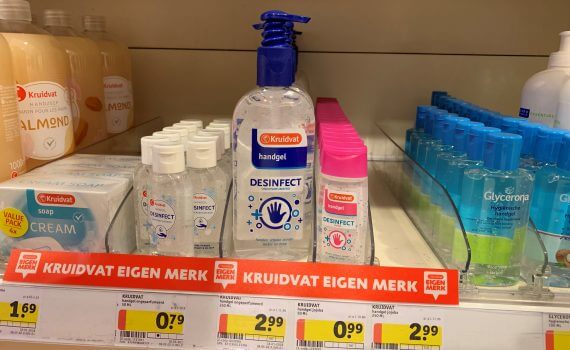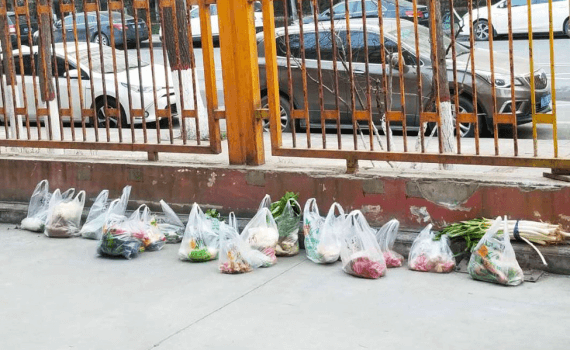Health & Environment

Fight or flight: How do Students Abroad Cope with the Global Pandemic
- 2020-04-08
- Health & Environment
- The Young Reporter
- By: Yanni ChowEdited by: Moon Lam
- 2020-04-08
As schools around the world shut to stop the spread of the novel coronavirus, university foreign exchange students struggle over the decision to return home or stay put. In Europe, non-essential incoming travel was banned on March 17, stirring worries among the student community as air ticket prices shot up. Rachel Khun, a German exchange student in the Netherlands, decided to go home, despite Germany having one of the highest numbers of confirmed cases in Europe. "I left the country when face-to-face classes at the university were suspended. Staying at home reassures me," said the 21-year-old, adding that her home in the German countryside has fresh air and open space and she can follow the news in her mother language. "I will not return to the Netherlands unless classes or exams are resumed on campus," said Ms Khun, who was sharing a home with three other students there. Also studying in the Netherlands, Chiara Pierucci, 21, from Italy, decided to stay as the number of confirmed cases there are fewer than in her hometown. "My parents asked me repeatedly to go back home before all flight connections would be interrupted, but I thought that staying in the Netherlands was safer," said Ms Pierucci, who lives alone in a studio apartment with a private toilet. Italy is the most hard hit country other than China, with case numbers reaching 64,000 and a death toll over 6,000 as of March 24. Meanwhile in the Netherlands, the number of confirmed cases is just under 4,000. Ms Pierucci said her main concern is the spread of the virus. "The possible development of the virus is scarier than catching the actual virus," she said, though she also worries about the Dutch private healthcare system, which requires insurance. Alitalia, Italy's main carrier, requires passengers to wear …

Quest for masks in Europe: not a common practice
- 2020-02-20
- Health & Environment
- The Young Reporter
- By: Yanni ChowEdited by: Carol Yuan
- 2020-02-20
Wearing masks is essential these days as Coronavirus 2019 (COVID-19) has been raging for months. While searching for masks is a common practice in Hong Kong, the same behavior may be considered bizarre in Europe. According to the World Health Organization (WHO) as of 13 February, the number of confirmed cases of the disease outside of China is 447, with 46 recorded cases in the European Region. As the price of masks in Hong Kong went up due to high demands and the supply is insufficient, some continued the quest for masks abroad. The Netherlands, which has not recorded any confirmed cases, has been a target for some. Jason Yu, a Hong Kong man who is currently traveling in Europe, said he did not expect masks and disinfection supplies are that expensive and hard to find. "I found masks in Germany that cost 50 euros per box (50 pieces of masks). I have bought some alcohol hand sanitizers in Switzerland. But I am surprised that no masks are sold in the Netherlands," said the 24-year-old traveler. Chu Ho-yan, a student who is currently on exchange at Tilburg, Netherlands, also failed to find masks in the city. "My family in Hong Kong is running out of masks for daily use and the supply is scarce. They thought I could buy some here and have them delivered to Hong Kong," said the 20-year-old girl. She finally found two boxes of masks in Brussels, Belgium, which is an hour's journey away from the Netherlands. Even though she found masks, she said she would not wear them on the streets, so to avoid misunderstandings. "While it is common to wear masks to prevent getting infected in Hong Kong, I observed that Europeans do not do that. I understand that it is a cultural difference," she …

Closed-off management in Shenzhen communities during COVID-19 : People long for work resumption
- 2020-02-19
- Health & Environment
- The Young Reporter
- By: Cynthia LinEdited by: Cherry Lee
- 2020-02-19
Residential communities in Shenzhen are implementing closed-off management, some entrepreneurs at Peak Boulevard Estate long for work resumption due to concerns of financial losses of enterprises. "294 people's temperatures were tested, 0 shows abnormal..." After reading the daily community disease-prevention briefing, Tian Bao, the owner of a winery, as well as the resident of Peak Boulevard Estate, started his another closed-off day with the latest news of coronavirus pneumonia on social platforms. The COVID-19 coronavirus was found in Wuhan in December 2019. It first broke out as an "unknown pneumonia" at the Huanan seafood market and quickly spread throughout China during the next 2 months. Many countries in Southeast Asia, Europe, North America and even Africa were also affected. Up to now, according to the official daily announcement of the National Health Commission of China, there are around 57,900 existing cases, over 2000 deaths were reported. Shenzhen has cumulatively confirmed more than 400 cases, ranking at the top in Guangdong province. "Few people are going out now because everyone is afraid of the virus," said Zhang Li, a resident of Peak Boulevard Estate, "I only went out for some necessities which I couldn't buy from online stores. My family hasn't been out since the end of January." Shenzhen Headquarters for Prevention and Control of Pneumonia Epidemic Caused by Novel Coronavirus officially announced the implementation of closed-off management in all the residential communities in Shenzhen on February 7. The property service department of Peak Boulevard Estate took actions on February 5th - unnecessary visitors are restricted from entering the community, residents have to declare their information through a Wechat program named "i Shenzhen" and use a specific system authentication code for entrance. "We receive a daily report from the property services department, it concludes what the staff has done to prevent …

How district councillor is helping the community
- 2020-02-19
- Health & Environment
- The Young Reporter
- By: Carol MangEdited by: GOH Kylan
- 2020-02-19
Amid the shortage of sanitary equipment, the newly elected district councillor Jimmy Sham in Lek Yuen area has been distributing masks to the residents in his district. With most of its residents being elderly, Jimmy Sham is worried that such an old area would have a higher chance of coronavirus outbreak. “As the elderly are having poorer immunity than normal people, they are more likely to catch diseases. So if the coronavirus is spread here, that would be a big issue.” However, elderly in the estate usually have less social resources to catch up information for buying masks. Ms. Chan is among them. The 64-year-old woman has reused her surgical mask for a week, and she was going to use it again tomorrow. "We really don’t have many left at home. And we need to spare some for my son because he needs to go out to work everyday." "Some people have donated a few boxes of masks to us. We are figuring out how to distribute them in a relatively fair way, as we can't help them all," said the councillor. In order to benefit more people, they unboxed all the masks and repacked them for every 10 masks. Instead of distributing the masks to all the residents, they registered for around 600 residents who have asked for help, and spare enough masks for them. Ms. Chan has got two packs, in a total of 20 masks, for her 3-people family. She was happy about the service of the new district councillor. "He is helpful as he knows we do not have enough masks." However, the method of distribution has aroused dissatisfaction among the community. A 78 years old man complained that he did not know they were distributing masks, therefore he didn’t register beforehand. "We have already tried …






